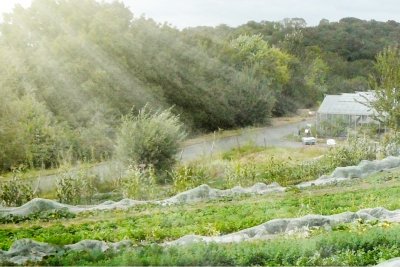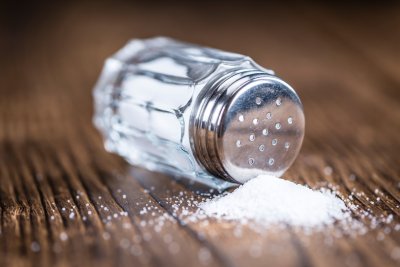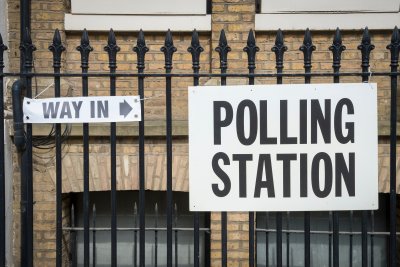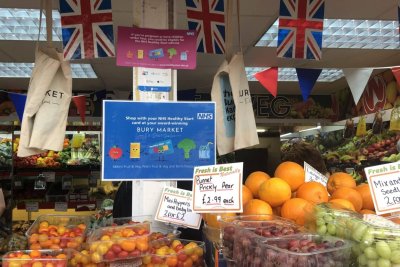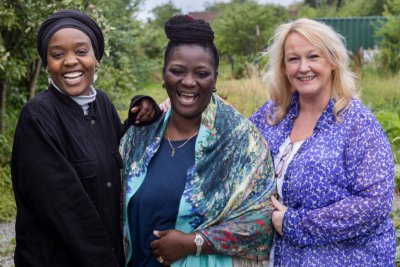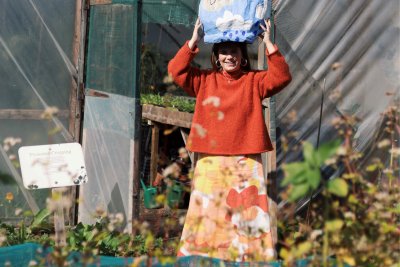Blogs • Sustainable Farming Campaign
We need to talk about costs and complex supply chains
Vicki Hird, our Head of Sustainable Farming discusses why action to change the food chain beyond the farm gate is so essential, for good nutrition, for fairness, for action on nature and climate and for future food resilience. Our new report, out soon, unpicks the costs and extractive supply chain for some answers.
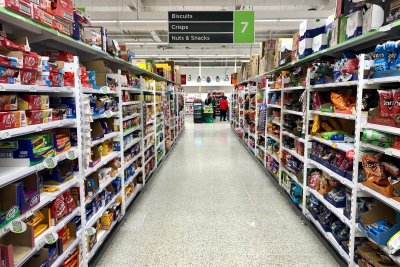
Why does sustain have campaigns on the supply chain? I have been asked many times and it’s a reasonable question. The bit in the middle between farmer and eater is often hidden and its impacts are certainly hard to explain. Much easier to stick to government farm policies and consumer choices.. and when I try to encompass it all in a quick chat with a civil servant or TV researcher it’s not easy.
I’m lucky though. I can walk from home to an organic farmers market each week. I chat to the farmers selling and buy what is in season. I can feel the produce in my hand – no overpackaged, processed goods, and no psychologically designed marketing blurb. I get to see a fabulous array of soil grown veg, fruit, meat, cheese and breads. The range of colours is sometimes staggering.
Because this market and its customers exist, its farmers and growers can maintain organic farming, and their business and workers, with all the climate, nature and ecological benefits that brings on those hectares.
This is a short, farmer focused, values based, supply chain where a decent portion of my pound reaches the farmer and there are few intermediaries to extract costs in between. This is not normal.
We have a new report coming out very soon which looks at the normal food chains - plus some alternative trading options - which most of us use. We look at where all the costs are extracted in that long supply chain for 5 everyday items: sliced bread, burgers, cheddar cheese, carrots and apples, and all examined by a Professor of Accountancy.
From this report, and wider evidence of harm from the current, complex food system, it is clear we need change. We will outline some conclusions and recommendations in the report. But here are some fundamentals to whet the appetite:
- No surprise that farmers and growers get a teeny, tiny portion of the food spend for each product. This has been the case for years but the squeeze has been growing and more and more costs extracted in the supply chain by intermediaries. It is one reason why the old CAP Basic Payments are so important and their loss, under the new Agriculture Transition Plan, is so hard for many farmers. In 2021/22 this payment accounted for around a third of Farm Business Income.
- We need food to be affordable for all but that's more about incomes than prices or productivity. But there is an acute cost of living issue right now and we have seen major dips in purchasing of quality, assured produce like organic. Veg box schemes have lost customers in the face of a real cost of living challenge. Our new Bridging the Gap is looking to trial ways to get over that – to match the great, agroecological producers with eaters who don’t have the income/time to currently buy at an organic market. From our data its clear there are many costs in between farmer and consumer that need more attention.
- The market drives demand - not really consumers (also see next point). The market dictates what, when and how farmers grow. They drive the level of uniformity and therefore monocultures and genetic uniformity by their specifications and demands. They cross the world to source cheap food and develop new products that fill the shelves with what looks like a huge choice – a cornucopia. They do it very well. But much of it is not really what we or the planet needs, and its looking decidedly vulnerable.
- I say ‘consumers’ deliberately as we are all eaters, not consumers*, but we are categorized as consumers. That way we can be led, in extremely subtle ways, to buy, eat and waste what the markets wants to sell us. The advertising and marketing spend on food is huge and is largely for processed products. And retailers make the most money on the products that are the cheapest to source, or high value like alcohol..
- We need a huge growth in better routes to market – to pull and push it out of the tiny market share and niche bracket - so many more farmers can get more of the food £ without eaters having to spend much more. And so they can invest in an agroecological transition, grow differently and different produce – better suited to their land and climate and soil.
Watch out for our new report - “Unpicking Food Prices: Where does your food pound go, and why do farmers get so little?” - out soon and find out where your food £ really goes. Spoiler alert... not much to farmers.
*for more on this see Food Ethics Council https://www.foodethicscouncil.org/programme/food-citizenship/
Published Tuesday 15 November 2022
Sustainable Farming Campaign: Sustain encourages integration of sustainable food and farming into local, regional and national government policies.
